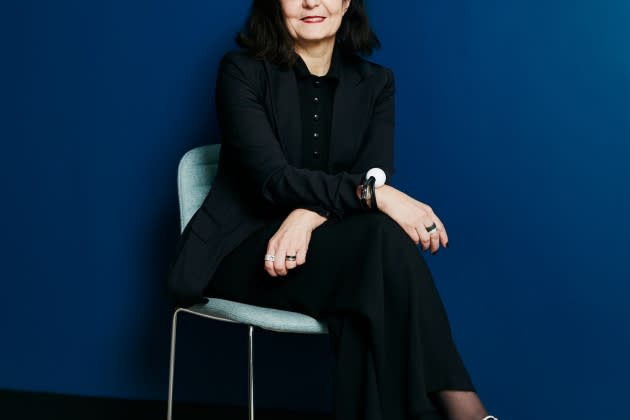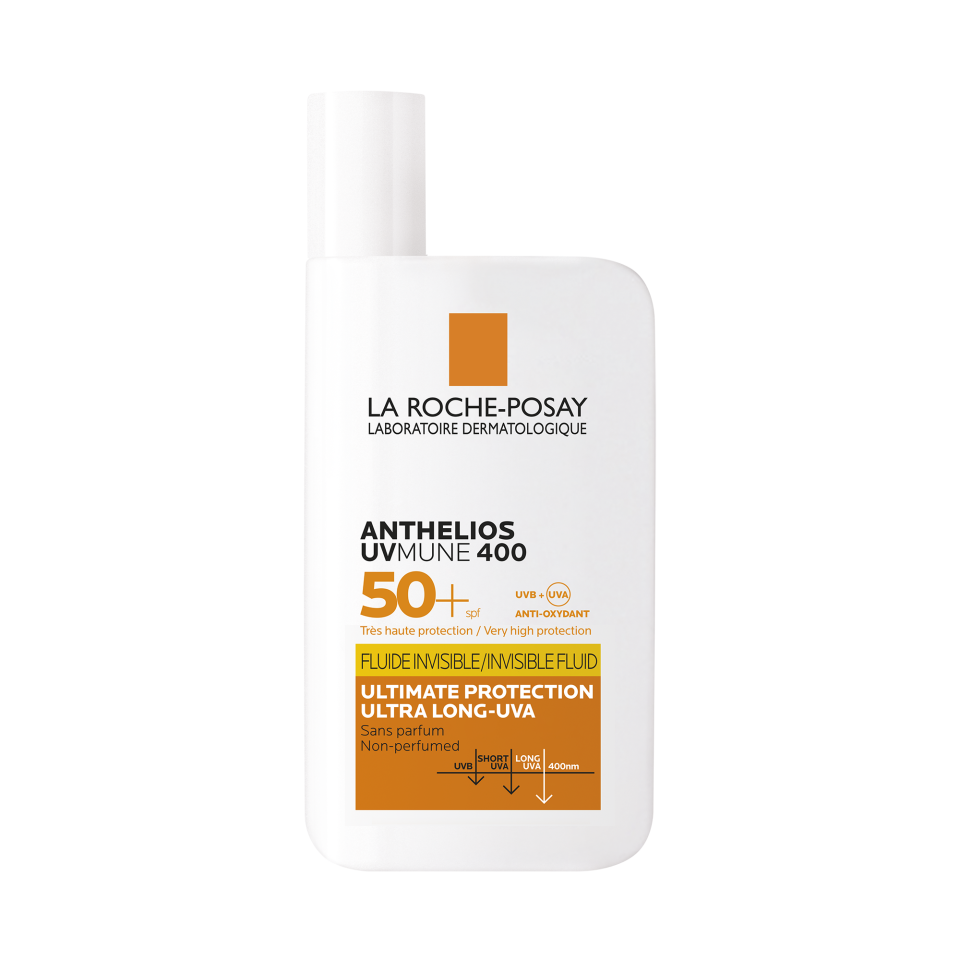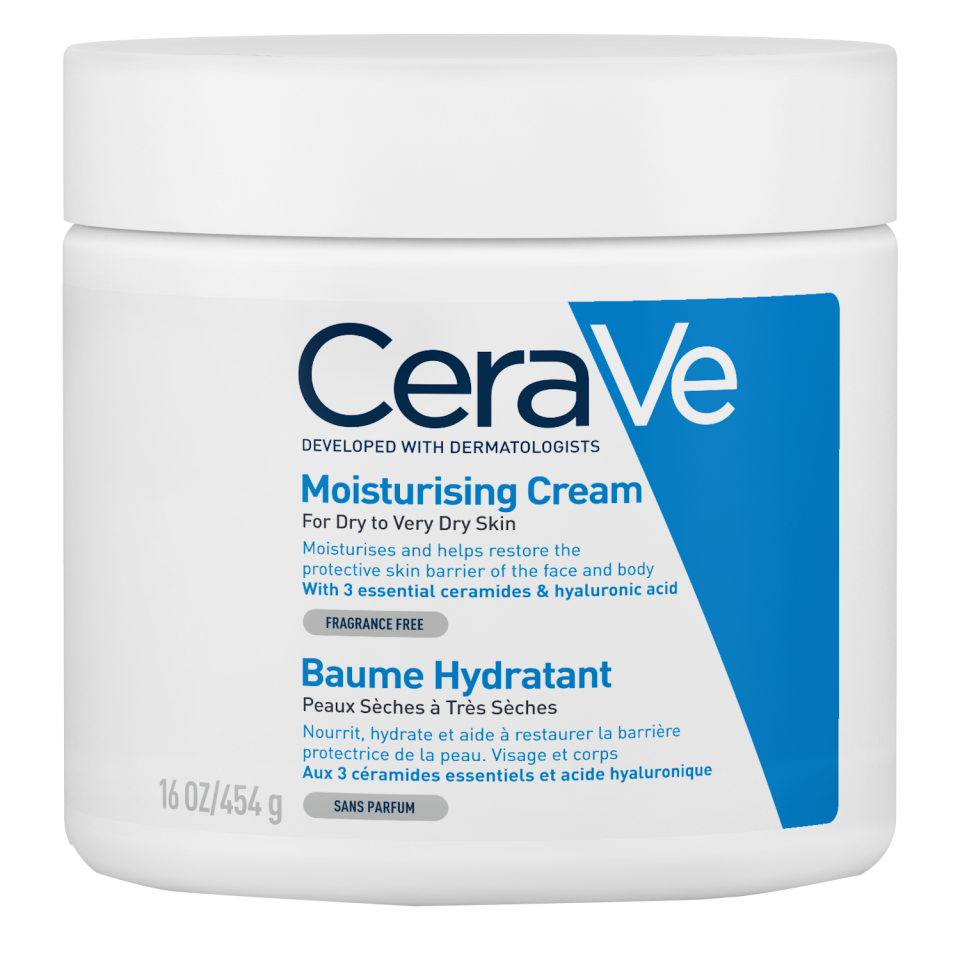Experience Matters With L’Oréal’s Myriam Cohen-Welgryn

Myriam Cohen-Welgryn is a force to be reckoned with. Since arriving at L’Oréal in May 2020 and taking the reins of its now-called Dermatological Beauty Division, she has set the business on fire.
Sales at the division — formerly called the Active Cosmetics Division, which groups together the brands La Roche-Posay, SkinCeuticals, Vichy, CeraVe and Skinbetter Science — have subsequently doubled, despite pandemic lockdowns and ongoing complex geopolitical and economic environments around the globe. Last year, they even outpaced the fast-growing dermocosmetics sector by 2.5 times.
More from WWD
The momentum has continued: the Dermatological Beauty Division was the fastest-growing branch at L’Oréal in the first quarter of 2023, when the division’s sales increased 34.6 percent in reported terms and 30.6 percent on a like-for-like basis to 1.69 billion euros.
Cohen-Welgryn, in her signature red-rimmed glasses, has a laser-sharp focus and a clear, holistic vision about how beauty and health dovetail.
She opted not to become a doctor, as most members of her family are. Instead, the executive attended France’s ESSEC business school prior to launching into marketing.
“Then, guess what — I spent all my life working in health,” said Cohen-Welgryn, with a laugh, sitting in her office on the fourth floor of L’Oréal’s headquarters in the Paris suburb of Clichy.
She often underscores her well-conceived points with others’ quotations.
“I always use the Oscar Wilde quote: ‘Shoot for the moon. Even if you miss, you’ll land among the stars,’” Cohen-Welgryn said.
That is part of her secret sauce, which also blends in longstanding experience at fast-moving consumer goods companies, including expertise in corporate environmental policies.
Cohen-Welgryn’s first job was at Procter & Gamble in 1989, working on an anti-acne product and then on Head & Shoulders. Next up were Danone and Mars, with a concentration on nutrition, for humans and pets, respectively.
“You have the power to totally drive health through food,” she said. “Food is the first medicine.”
Cohen-Welgryn has a wide-ranging background in developing brands and operating businesses at both regional and country levels, and accelerating growth and profitability.
She rebranded her division as L’Oréal Dermatological Beauty in 2022.
“I believe in the power of words,” Cohen-Welgryn said. “Words make things happen. Describing ourselves by saying ‘We are L’Oréal Dermatological Beauty,’ you really stand for what we truly are. Dermatology means pathology and aesthetic, and the link to beauty is very important.”
Her corporate experience includes promoting women in the workplace. In 2018, she published a book entitled “Et tu oseras sortir du cadre!” (or “And you will dare to step out of the frame!”), a handbook to guide women’s ascension in business. Its cover is graced with a grinning stick figure of a woman with red-rimmed glasses bursting through a glass ceiling — guess who.
Over the desk in Cohen-Welgryn’s light-filled office at L’Oréal hangs a print by Niki de Saint Phalle depicting a woman with shapes floating above her head.
“You could say this visual is about what women can bring to the world if they dare to bring out what’s inside,” Cohen-Welgryn said. The independent, pioneering artist is a role model for the executive, who has no qualms herself about going against the grain.
“I love her Nanas,” Cohen-Welgryn said, referring to Saint Phalle’s iconic colorful sculptures of women. “They’re about daring to be yourself.”
Cohen-Welgryn sat down with WWD Beauty Inc for a wide-ranging discussion about her career, transformation and other opportunities.
What drew you to a career in beauty?
I started my career in beauty, and now I close the loop. It’s a bit by chance that I chose beauty first. What drove me to the first job was that I really wanted a school that allowed me to learn my job. At the time, I considered P&G the school.
What I learned during my career is that what drives my choices are values and purpose. You’d better choose companies that have the same values as yours, otherwise you can’t be who you are. You lose who you are, and you cannot really be successful.
What counts for me is having an impact. What I love is that at L’Oréal diversity goes down to individual diversity. In the end, the extreme of diversity is allowing everyone to be who they truly are.
Who and what have been among your most formative teachers and positions?
M.C.-W.: One is Muriel Pénicaud. She was the Danone human resources vice president. I’ve always been very engaged in women’s causes, not just because I am a woman and I had to face the difficulties and the obstacles that women do in companies. At some stage, I realized that as I was going up the ladder women were disappearing. This person took me into her office and explained the fact that it was a systemic issue. I understood it’s not just me, it’s a system that we need to work on. She made me aware of that, and helped me. Muriel has been decisive in my career.
The most formative position — there’s one that’s been a game-changer in my life. It’s when I took a big risk. I was on a business path, and at some stage [at Danone] they came to propose I lead the group on environmental transformation. It was a big risk. I consulted all the people I knew. I said: “What should I do — should I take that?” They all said: “You should not, it’s a risk.”
Driven by my curiosity, despite the advice I received, I jumped, and it’s been a personal transformation. There’s a before and after. I became someone else. That drove me to understand my professional purpose, which is to change things, to change business practices to make them compatible with the planetary boundaries.
I see myself as a bridge. My name is Cohen-Welgryn, [meaning] “well green.” It’s something important for me, which is to make a difference, to make sure we ensure our kids — and the kids of our kids, the next generations — can have a healthy life.

Which have been your most important pivot and inflection points?
M.C.-W.: I talked about the one on sustainability. My first position as a manager taught me how flex my style. I discovered the engines that drive people can be different, and you need to tailor how you engage and drive them based on who they are.
One job that was important was my first regional role. Before joining L’Oréal, I was the regional president of Europe for Mars pet care, and I worked with English, Polish, French, German people. Managing diversity in an intercultural context, which is very rich, which brings a lot of wealth, requires specific management…to allow people to have a common language.
How would you describe L’Oréal’s dermocosmetics business?
M.C.-W.: Dermocosmetics addresses the needs of the people that have specific needs — skin pathologies, skin conditions or demand for very specific aesthetic performance. I think its impressive growth trajectory will continue. The market is booming for many reasons. There’s an unprecedented quest for health, which has been radically accelerated by covid. Health is no longer a given. Also, the role that doctors play and their credibility have never been as big.
On the pathological side, there are more and more skin conditions. There are 2.1 billion people that suffer from them. It’s very significant, and this is going to grow, because of climate change, exposure to UV. It’s going to increase because of urbanization. It is also growing because of stress. We live in a VUCA [volatility, uncertainty, complexity, ambiguity] world.
The fourth big element is the aging population. If one out of four people have skin issues, one out of two have skin issues as they get older — above 60. As you age, your skin barrier becomes thinner, and you tend to have dry to very dry skin. It’s important for health, because your skin is a barrier to pathogens. So if the barrier is weakened, it’s the total health condition that can be impacted.
Then there’s the boom of aesthetic [treatments] and the selfie boom — all the social trends. Those elements make the way you look even more important than before.
How are you transforming your division?
M.C.-W.: The first thing we just did last year was change the division name [from Active Cosmetics]. Then, of course, there are other transformations. There is a big sustainability roadmap, but that is not specific to our division. That is a L’Oréal transformation, which is very important for me. An example is we’ve reduced the packaging intensity by close to 30 percent since 2019.
The last big transformation I want to discuss is the one on impact. L’Oréal has a big purpose, which is to create the beauty that moves the world. In our case, it’s about creating life-changing and sustainable dermatological solutions for all.
Where do you see the most opportunity for the L’Oréal Dermatological Beauty Division?
M.C.-W.: The aging of the population is a critical element, but we also have acne, eczema and all the questions around anti-pigmentation, which are going to increase with climate change. You also have massive opportunity on the aesthetic side, as more and more people turn to derms to do procedures. Considering how our topical products can be integrated into this is very important to a brand like SkinCeuticals, which allows you to protect the investment you make on procedures by giving the best, the most performing creams and serums to maintain the procedures’ performance.
On geographical scope, there’s massive opportunity for us in China and the U.S., which have represented a very big part of our growth and will continue to do so. And then, of course, there are the markets of the future: Africa, India and Indonesia.
How do you describe your leadership style?
M.C.-W.: There are five key beliefs I have for myself. The first is authenticity. That’s something that is not a choice — I don’t know how to be different. The second big element is you don’t drive people by the how or the what, you drive people by the why. So for me, it’s always about being clear on what’s the big why, and what’s the purpose? Why do we wake up in the morning to go to work?
The third one would be: Think big. It’s the difference of having an objective and having an ambition. You need to work with the ambition, and then you do bigger things, can have an impact and leave a legacy.
The fourth one is about collaboration. Some people have the belief that one individual can change it all. I don’t believe this is possible. I think that it’s the collective intelligence that makes the difference. It’s really how I work. I always bring people together, get the different angles, and it’s much richer and more powerful.
The last one is the leader [sets] the frames. It’s not because you co-build the vision and the ambition that in the end you can do anything. I believe in freedom within a frame.

How do you keep up with what’s happening in beauty and the world at large?
M.C.-W.: Because beauty has so many different expressions across the world and it’s so linked to culture, it is very important to start from there and to really be infused by all the teams around the world.
There is a very important belief at L’Oréal, which is “seize what starts.” I have never seen a company that is so powerful in understanding this. We [have the structure] to do that.
The third point would be learning expeditions — travel to the future — that’s also something very powerful.
What advice would you give to young people wishing to follow in your footsteps?
M.C.-W.: Shoot for the moon — for your own self. If you don’t target a high enough summit, obviously you’ll be limited. Then I would say, dare to get out of the frame, because that will drive you out of your comfort zone. I wrote a book saying that. Curiosity is totally underrated, but it’s totally critical — especially in the fast-moving world, where you need to constantly learn. And one of the drivers of learning is being curious.
And, just to finish, I love poetry, I love literature. René Char is one of the poets that inspires me most. He has a quote, in “Les Matinaux” (or “Dawn Breakers”), which is: “Impose your luck, embrace your happiness and go toward your risks: by looking at you, they will get used to it.” I love that.
Best of WWD


